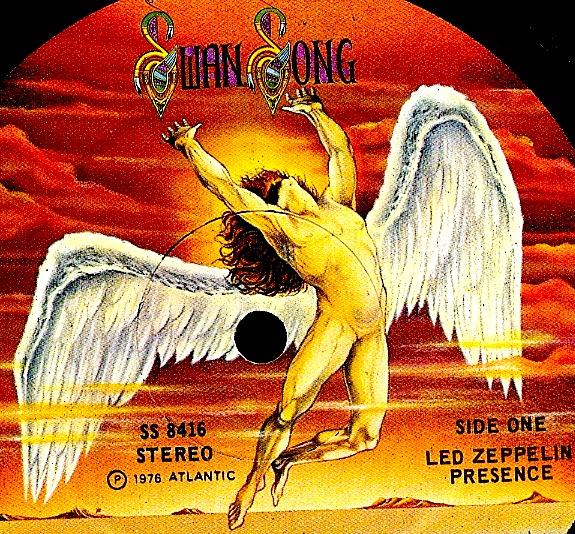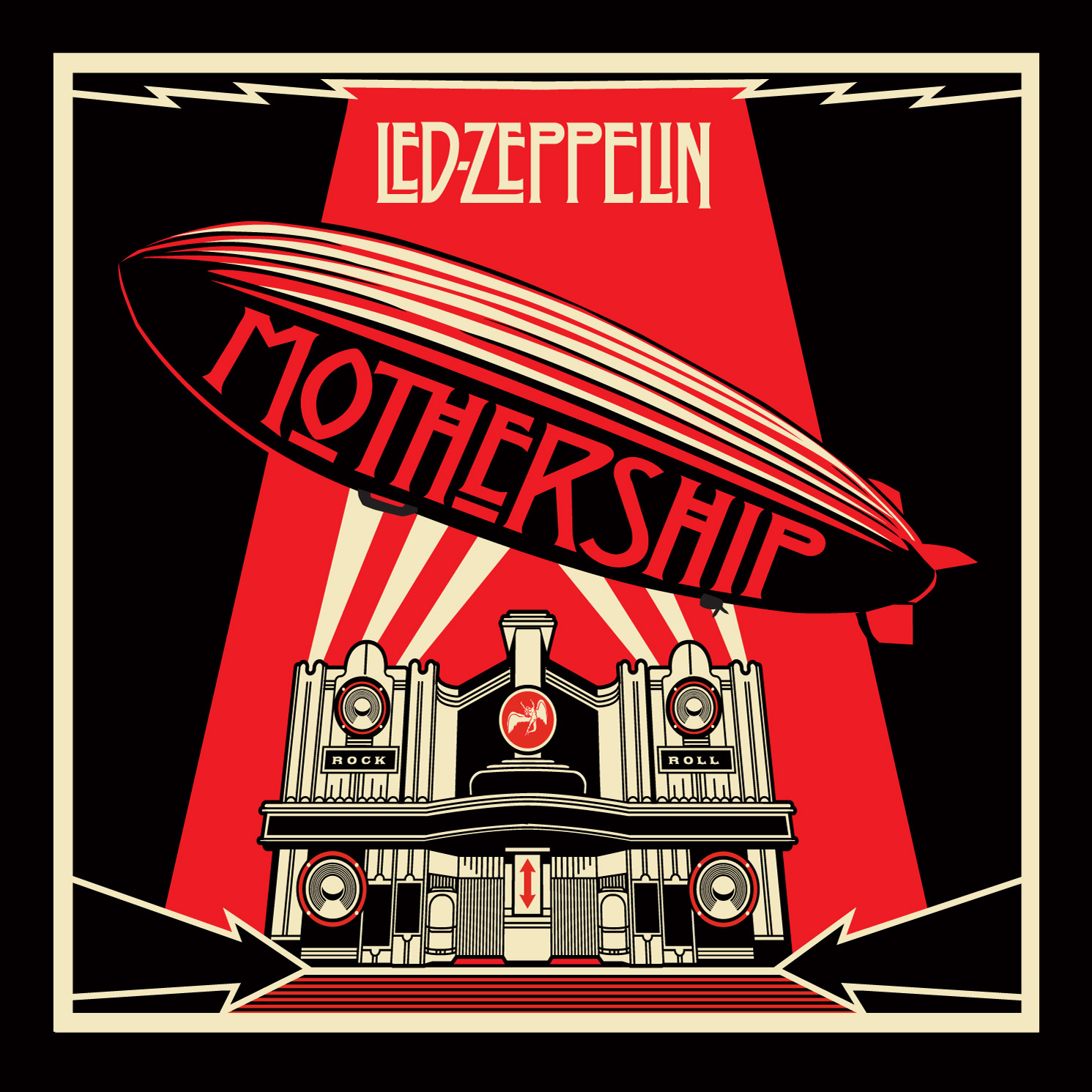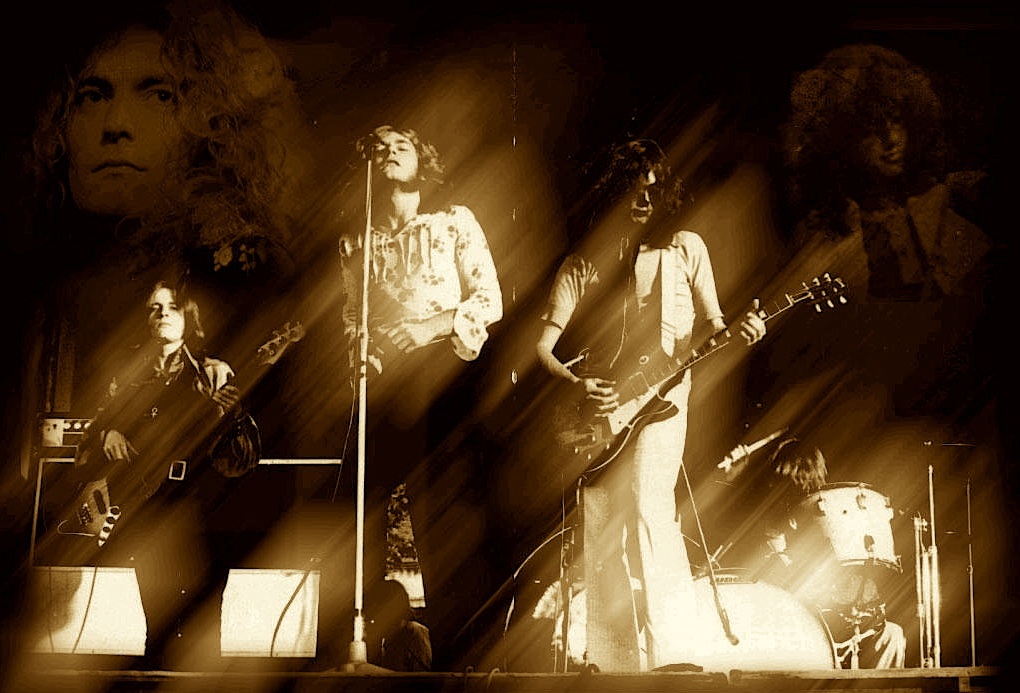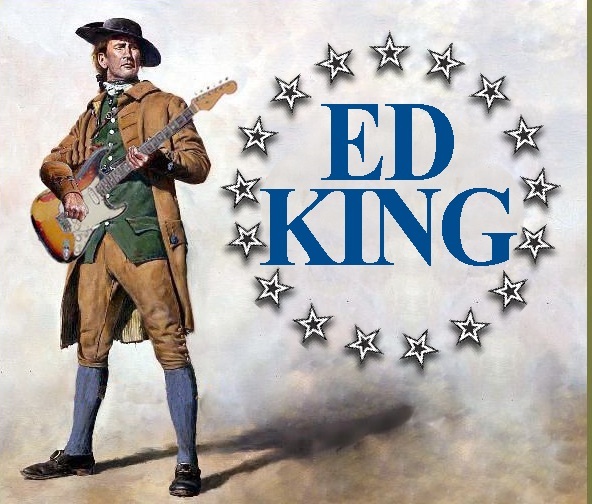
NOW PLAYING ON PHAWKER RADIO: Led Zeppelin Mothership
The other day I was driving around with my oldest son when Led Zeppelin’s “Good Times, Bad Times” came on the radio. I cranked it up — and then cranked it up further as the solo approached. I tried to square my jaw like Bill Cowher’s and show the boy what it means to be alone, not to care what the neighbors say. Little did I know the song was probably programmed to play at that particular time on that particular Classic Rock station to celebrate the release of the latest 2-CD, remastered, repackaged Greatest Hits collection by these mighty titans of ’70s hard rock, Mothership. This edition was personally sequenced, remastered, and violated by the surviving members of Led Zeppelin. Even the ghost of deceased drummer John Bonham is said to have done his part with a red snapper.
Listen to “Dazed and Confused” and consider just how small Jack White’s well-intentioned dick is in comparison. Oh, John Paul Jones, no wonder Robert Plant is moaning during the psychedelic breakdown! As noble as Plant’s recent collaboration is with bluegrass artist Alison Krauss, this is the sound that gets the kingsnake-a-rattlin’. By the time we get to Jimmy Page’s typically ham-fisted guitar solo, who the hell cares?
As far back as the late ’60s, did the dark arts in which Plant and Page dabbled divine the following decade’s coming punk rock revolution? “Communication Breakdown” would forever haunt stuck up, insecure punks of my generation. No matter how cool we thought we were with our pumping, Ramones-style Barre chords, the mighty Led Zep had been there, done that.
Manliness established, it’s time Page picks some delicate arpeggios on his acoustic while Plant trolls for a maiden or three. “Babe, I’m Gonna Leave You” goes out to the ladies. The delicate pleas of the front men are punctuated by the massive tom fills of John Bonham, rock’s heaviest drummer. Eventually, following one last volley of Page-Plant curlicues, Bonzo inspires the pretty boys to give up the chase and go for the kill. “Baby, baby, baby, baby…” As a teen I was amazed and disgusted by how many times Page could moan “baby” and “woman.” To this day I’m a bit baffled by this practice, but now I’m willing to let it ride.
maiden or three. “Babe, I’m Gonna Leave You” goes out to the ladies. The delicate pleas of the front men are punctuated by the massive tom fills of John Bonham, rock’s heaviest drummer. Eventually, following one last volley of Page-Plant curlicues, Bonzo inspires the pretty boys to give up the chase and go for the kill. “Baby, baby, baby, baby…” As a teen I was amazed and disgusted by how many times Page could moan “baby” and “woman.” To this day I’m a bit baffled by this practice, but now I’m willing to let it ride.
As “Whole Lotta Love” kicks in I wish my Mom had remembered to check the radiator on my ’72 Nova while I was away at college. I’d still be driving that bad boy, and I’d still crank it up when this song came on. Then I’d blow out a speaker when the following Zeppelin classic got to its funky chorus: “Ramble On“. Loosen your belt a notch, let this song wash over you, and tell me you will ever be able to listen to a Decemberists album again.
OK, “Heartbreaker” introduces my first beef with this collection. a major beef that has been repeated as long as Zeppelin songs have been digitized and repacked in various “gotta have ’em” hits sets: It’s not followed by “Living Loving Maid (She’s Just a Woman)“! As any high school guitar hero can tell you, the hard work that went into slavishly learning every stilted note in Page’s unaccompanied “Heartbreaker” solo was a build-up to the dead-stop ending and immediate launch into “…Maid” No sequence of 0s and 1s should stand between these two songs. Ever!
As titanic as “The Immigrant Song” is, it’s inclusion without a “cool” album cut in-between is beginning to make this too much of a Greatest Hits collection. I don’t know how you feel, but given the choice between a Greatest Hits collection and a Best of…, I usually lean toward the Best of… collection. It goes beyond the numbers, if you know what I mean.
Speaking of numbers, “Rock ‘n Roll” is a Zeppelin song that even relatively late converts to the band can continue to dislike. It’s not that great an “old-time rock ‘n roll” song; in fact, it’s not much better than the Seger song that makes our generation think of Tom Cruise in his tightey-whiteys. Cruise in briefs in a Cadillac? No thanks.
There’s one rule I have about long Zeppelin blooz cuts: Skip ’em! Sorry folks, no further insights to share on this piece of trash known as “Since I’ve Been Loving You.”
“Black Dog” is a song that’s a little cooler in concept than in practice, but it will get me through a stretch of traffic or home from a club late at night. More exciting, however, is “When the Levee Breaks,” which for all its proto-PJ Harvey, crawlin’ kingsnake charm, is really not much of a song once you get past the tremendous intro. Think about it, is there a song in rock history that gets more mileage out of the drum sound in the intro? It’s all there, man.
There’s one rule I have about listening to “Stairway to Heaven“: Unless I’m instructing a young listener on the often silly dynamics of ’70s rock, there’s no reason to sit through this song again. This was playing in the background during my first, middle school makeout session. It will never get better than that moment. There are details from that evening that I will not share with young listeners. Let’s move along.
The movie of this title fulfills all the malevolent wishes a teenage, pussy punk rocker circa 1978 might have had for Zeppelin, but the song “The Song Remains the Same” is out of this world. I imagine this is what the fellows in Rush aspired to every time they put down their slide rules and entered the studio. Dream on, Geddy!
Wanna learn how to play a few riffs on acoustic guitar to impress the ladies? The Beatles’ “Blackbird” a little too soft for the woman you have in mind? How about you pick out the opening of “Over the Hills and Far Away“? Once again, Bonzo and the boys quickly burst in on your little makeout session, but it’s cool.
“D’Yer Maker” is a good song to like when you don’t normally like Zeppelin, but once you do it gets old fast. On the other hand, “No Quarter” is one of those junkie, vomit-encrusted blooz numbers that go on forever. The most significant thing about it is Jones’ nausea-inducing electric piano. Skip!
“Trampled Under Foot” is another song that kids who don’t really like this band can grab onto. It’s like Aerosmith without the goofy, grinning hambone of Steven Tyler. It’s like Stevie Wonder on Satan.
 Then, children, there’s the manifesto of “Houses of the Holy”, with the immortal lines, “Let the music be your master, can you hear the master’s call?” Believe me, I can hear them. Once again, the funk of Led Zeppelin comes to the fore. Later period Zeppelin, when not too under the spell of Page’s Satanic junk spree, could boogie down with the best of them.
Then, children, there’s the manifesto of “Houses of the Holy”, with the immortal lines, “Let the music be your master, can you hear the master’s call?” Believe me, I can hear them. Once again, the funk of Led Zeppelin comes to the fore. Later period Zeppelin, when not too under the spell of Page’s Satanic junk spree, could boogie down with the best of them.
“Kashmir” . . . .signaling yet another potentially damaging at-bat by Chase Utley! I remember watching the long hike up the snow-covered mountain that Toby McGuire and his mates made in the third Lord of the Rings movie and thinking that the entire scene was a visualization of this song. Still one of the least-expected turns rock ‘n roll has taken. You’re telling me John Lydon and Keith Levene didn’t listen to this song every day while recording The Flowers of Romance album? For shame, punk rockers!
“Nobody’s Fault But Mine” is yet another funky Zeppelin number. They should repackage a CD of nothing but Zeppelin funk some day. This track mixes the funk with the junk in a way that George Clinton must have appreciated. Page often does his best guitar playing on these funky cuts.
We come to “Achilles Last Stand,” a rambling mess of all that sucked about the heavy metal that would follow in Zep’s wake. How is it that the one band that essentially forged the metal genre could leave a legacy so mighty that no other bands could build upon it?
At this point, even Zeppelin would, wisely, back off from the mineral deposits they begun to leave. This collection wraps up with “In the Evening” and “All of My Love,” the two hit singles from the band’s unplanned swan song, In Through the Out Door. “In the Evening” starts off like its going to be one of those jaundiced tracks off Presence, but it quickly picks up steam and points the way toward a poppier take on the Zeppelin funk. Billy Squier would spend a couple of years trying to scale these moderate heights. “All of My Love” probably pissed off the faithful, especially when not nuzzling up to a girlfriend’s neck, but it also pointed toward a way out, or should I say a way into the dignified melding of ’50s rock, hippie idealism, ’70s funk, and Eastern/occult mysticism that had always interested the band and that drives Plant to this day.
*
ABOUT THE AUTHOR: Ed King likes a lot of things, but mostly he likes to be left alone. Ed has kicked around the outer orbits of the periphery of local scene for some time. He was there when Tuxedomoon played Revival. Ed likes all things great and some things good. Anymore, what falls short of those simple criteria gets harder to bear. He appreciates you respecting his privacy at time like this.

